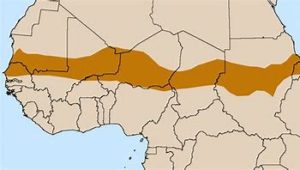 The war raging in Ukrainia since February 24 is tragic in terms of its ensuing human losses and the massive material destruction that have already been done. It is particularly central due to the issues opposing the many states involved. World economic and military powers clashing in a Europe that, since 1940, has not known an armed conflict of this dimension! The last one, horrendous, that of the former Yugoslavia (today recomposed of several sovereign states), did not include either the same strategic stakes or the same global scope as the one currently taking place. It is certainly far from over yet and the assessment of its various human and economic costs, as well as its diplomatic and military impacts, will still take time.
The war raging in Ukrainia since February 24 is tragic in terms of its ensuing human losses and the massive material destruction that have already been done. It is particularly central due to the issues opposing the many states involved. World economic and military powers clashing in a Europe that, since 1940, has not known an armed conflict of this dimension! The last one, horrendous, that of the former Yugoslavia (today recomposed of several sovereign states), did not include either the same strategic stakes or the same global scope as the one currently taking place. It is certainly far from over yet and the assessment of its various human and economic costs, as well as its diplomatic and military impacts, will still take time.
What about its current and future consequences for the Sahel Sahara? How – to avoid more wars or to end them- to manage the enormous challenges of a region in transition when, at the same time, wars of more global scope break out elsewhere? Who could then give advice and lessons in favor of peace and stability in the Sahel?
For 8 years, Promédiation and the Centre4s have organized in Tunis, annual meetings with participants from this region to discuss security issues in particular, traffics and trafficking in drugs, cigarettes, irregular migrations, etc. This year, Niamey offered its hospitality and he presence of government officials at the opening of the conference, during the debates that followed and helped to facilitate a diverse and high-level representations of the invited countries: Libya, Sudan and Chad.
In addition to official representatives of these countries, their civil societies were widely represented. Regional and European experts too. The European Union Ambassador to Niger, obviously familiar with the Sahel, made a noteworthy contribution to the debates.
The discussions, frank and free, marked the exchanges between participants. In particular, they finally allowed the « voiceless » to make known their views and opinions, in public and freely. To their great satisfaction and that of other participants. Though essential to the return of peace, that is an ingredient often ignored.
Familiar to difficult terrains and close to often marginalized rural populations, Promediation has done remarkable work with these groups without cutting itself off from the central authorities. A balance that is often difficult to achieve successfully.
While waiting for the follow-up to the conclusions of this conference, the organizers welcome the contribution of the Government of Norway to the convening of this meeting. They also are grateful for the support, particularly diplomatic, of the Government of Niger, to the success of the meeting.
In receiving the heads of delegations and the organizers, President Mohamed Bazoum called for more tolerance and inclusion of all groups, ethnic and otherwise, in the management of countries. He gave, as an example, the success of his predecessor, President Mahamadou Issoufou who during his two terms tenure opened his government, at the highest level, to the country national components. Adding, openness and tolerance are the guarantees of lasting peace, particularly in the Sahel.
The regional reconfiguration of the eastern Sahel, which is still sensitive, is an opportunity to discuss and move towards agreements and solutions despite the enormous pressures linked to various trafficking, the flows of refugees and the weight of near or distant states ambitions.
It is precisely the role of the mediations to prepare the ground and the men to bring back the still dormant peace in the Sahel.
In fine, it is to be hoped that the war now raging in the North, the industrialized world, with its flows of refugees and internally displaced persons, not to mention the dead and the many wounded, will not further marginalize peace efforts in the Sahel. Or on the contrary, could it, by putting more pressure on western countries, worsen further the security situation the region as it did in Syria and Libya? In this connection, this week visit of the Malian Minister of Defense to Moscow is the subject of serious concerns in the region.
By Ahmedou Ould Abdallah, President Centre4s.
Niamey 23/24 February 2022
